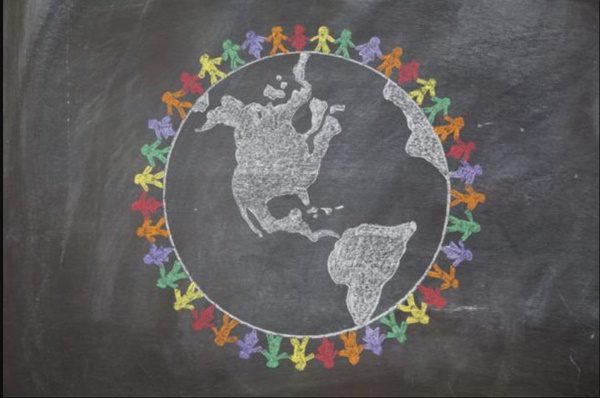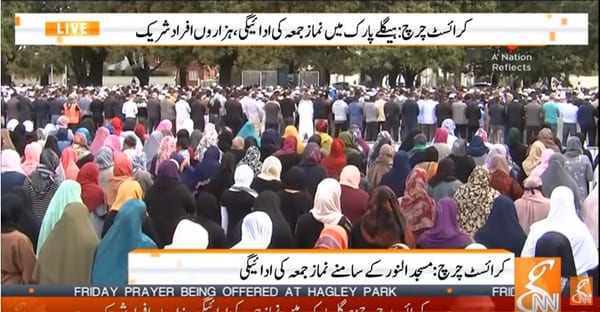I spent a great deal of time last week following the controversy surrounding the recent Babe article explicitly detailing pseudonymous Grace’s date with Aziz Ansari. As article after article offered various interpretations of Grace’s experience, one thing became abundantly clear: these awkward, uncomfortable, “is-this-abuse-or-just-a-bad-date” experiences are far too common, even ordinary.
Being in a situation in which one is uncomfortable or even afraid to verbalize a clear rejection is commonplace for women and perhaps, to a degree, for men too. Settling for something far less than ideal, giving in to an unspoken pressure to meet what one presumes to be the expectation of the other — especially when uneven power dynamics are at play – has become par for the course for what should be a mutually grace-filled experience.
As devastating as it is to come to terms with the way women are pressured, manipulated, or frightened into undesirable sexual activity, hope has emerged from the resulting conversation. Perhaps the best thing that could potentially result from the attention surrounding the Babe article would be a clearer understanding not only of the demarcation between bad and abusive sex, but also of what constitutes true intimacy.
True intimacy begins quite simply by recognizing and respecting the human being with whom you are entering into relationship. Trust and comfort, but also a refrain from taking the other for granted – a recognition that there will always be more to learn about this familiar but ultimately-not-you other person – builds from that foundation of respect. Good intimacy is that in which both partners are attentive, sensitive, ready to learn, ready to give. Effort is put into overcoming selfishness or defensiveness if they threaten to creep up. Each partner is aware of her or his own desires and is able to communicate them gently, but also recognizes that there is a greater good in attending to the needs of the other first. The relationship becomes bigger than each individual and yet each individual grows through the relationship.
The most basic foundation of a healthy intimate encounter – that is, recognizing a sexual partner as a human being worthy of dignity and respect – seems, sadly, lacking from the experiences of many. Selfish pleasure at the other’s expense, even if it’s consensual, seems to be the goal far too often. As this ugly fact comes to light, a potential good that may emerge in part from the #MeToo movement, beyond the necessary goal of holding people accountable for sexual violence, could be a change in the dynamics of intimate relationships from dominance to respect, from self-gratification to shared goodness.
Respect, sensitivity, kindness, and a commitment to mutual good should be the foundation not only of intimate relationships, but all relationships. From the personal to the international, the opening premise must be a recognition of unconditional human dignity. As the #MeToo movement sheds light on the chasm between that ideal and the reality in the context of intimate relations, I cannot help but see a parallel chasm in the context of international relations.
Just as women are speaking up, and the nation finally seems to be listening as they share their stories of enduring male aggression and exploitation, my mind turns to the people around the world who endure American aggression and exploitation. Just as I feel a simultaneous depression that women’s agency and dignity could be denied or ignored for so long mingled with a hope that conversation will lead to real change, I feel a similar despair that the American normal is endless war and exploitation of other nations mingled with a hope that – well, I don’t know, really. The despair is often overwhelming, because the endless bombing and droning and weapons sales and manipulation to assert American power and advance American interests regardless of the world’s welfare just continues. But I keep hoping, and trying my best to put my hopes into action, that in the midst of this important conversation about consent we might remember the countless people overseas who do not consent to our violence in their land. And just as the conversation about sexual relations needs to expand from what constitutes abuse to what constitutes positive relationship in order to transform the dynamic of intimate relationships from patriarchy to harmonious equality, so the premise of our approach to international relationships must change from “America first” exploitation and belligerence to a recognition of our interconnection and interdependence.
The same spirit of perceived superiority that leads some men to deny women their agency also leads our nation to exert power over other nations. Patriarchy and imperialism are intimately connected. Our hyper-masculine and hyper-individualist culture celebrates a spirit of competition, pulling one’s self ahead at the expense of others, a division of winners and losers. Aggression for men is rewarded in sports and in business, in the bedroom and on the battlefield. While sexual violence is at once despised but also minimized by our confused and often contradictory culture, conquest and bodily objectification are still celebrated. And in a culture lacking introspection, blinded by pride and exceptionalism, the harm our weapons and our policies wield around the world is almost never considered, the human lives lost and ruined almost never mentioned.
If so many men fail to see the humanity of a vulnerable woman right in front of them, how can our nation see the humanity of countless people living under skies filled with our drones, in nations littered by our bases, on streets torn apart by our weapons, in refugee camps having fled land our bombs destroyed?
The United States has overthrown governments, bombed nations beyond recognition, scared school children into staying indoors on sunny days for fear of drone strikes — all without consent. While our culture justifies, excuses, and glorifies our violence, lives are torn apart. Landmines we have dropped in wars decades ago continue to explode. Our 800 military bases vastly dwarf those of all other countries combined. We claim to fight wars for humanitarian reasons, yet exploit the natural resources of places we invade and create markets for our weapons and profits for our defense contractors. The rest of the world has said that our nation is the greatest threat to world peace. With the level of intimidation we have built up with our bloated military and our history of ruthlessness when it comes to using it (bombing everything that moves in North Korea, for example, or the promotion of the commander of the Fallujah massacre to Secretary of Defense), how do we know that any “consent” to our policies is not coerced out of fear?
And if there ever comes a day of reckoning for the crimes of US military aggression, as that day of reckoning is emerging for men who have used and abused women, how will our souls withstand it?
We must recognize that the spirit of self-fulfillment above others, and the willingness to use and exploit others to fulfill desires of power and greed, may find its most personal expression in the bedroom but is also wielded by American policy all over the world. And while many are finally beginning to deal in concrete terms with the fact that self-gratification at the expense of another is unacceptable in the bedroom, our culture still glorifies a policy that seeks to promote our nation above the world instead of encouraging us to see our responsibility in an interconnected world.
We must see that there is a better way, a way of relating to the rest of the world that is not only essential to the continued survival of our planet, but much richer and more fulfilling for all of us, our nation as well as others. Everything I said about good intimacy – recognition of humanity, respect, sensitivity, willingness to learn, curbing defensiveness, recognizing ourselves as part of something larger rather than positioning ourselves over and against others – can also be said of good international relations (though there is more to both of these). As far as real intimacy is from abuse, so far is the gap between exploiting the world and respecting the world. When we honor the humanity of others in our interpersonal relationships and our international relationships, we live into the fullness of our own humanity, for we are interdividuals made for good relationship. We can barely begin to imagine the unleashing of human creativity and joy that await us when we stop trying to rule the world and take up our role alongside our sisters and brothers of every nation to help heal it by caring for each other in love.
Image: “Consent” by Nick Youngsen, CC by S.A. 3.0 Alpha Stock Images via Picserver.org












